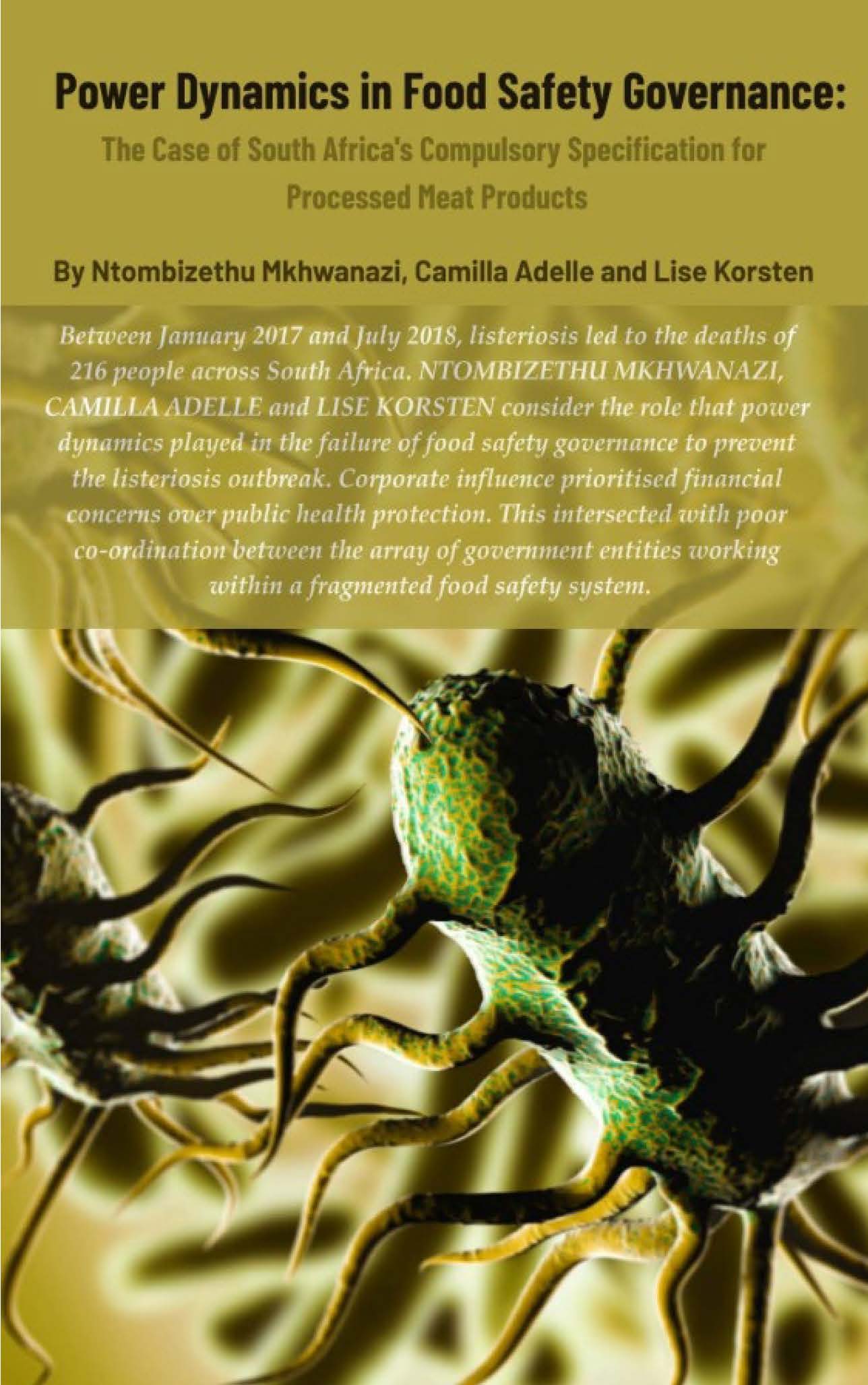Navigating power dynamics in food safety governance
The case of South Africa's compulsory specification for processed meat products
DOI:
https://doi.org/10.14426/na.v97i1.2878Keywords:
Food safety, Legislation, Listeriosis, South Africa, VC 9100, Foodborne illnessesAbstract
The 2017–2018 listeriosis outbreak in South Africa had a severe impact on the processed meat industry, prompting significant regulatory changes including the development of the Compulsory Specification for Processed Meat Products (VC 9100). This regulation aimed to improve food safety standards by mandating the implementation of a Hazard Analysis and Critical Control Points system across all processed meat production facilities. Drafting of the VC 9100 was initiated in 2013 following concerns that existing voluntary standards were inadequate for protecting public health. However, progress was hindered by strong resistance from industry stakeholders who argued that compliance would be financially burdensome, particularly regarding the costs and levies associated with its enforcement. The listeriosis outbreak, which resulted in over 219 deaths, dramatically shifted the regulatory landscape. The crisis brought food safety to the forefront of the national agenda, compelling the government to accelerate the development and implementation of VC 9100. Despite the urgency, industry resistance persisted, with stakeholders lobbying for reduced levies and delaying the regulation's full enforcement. This case study highlights the complex interplay between public health priorities and industry interest in food safety governance. It also demonstrates how crises can serve as catalysts for regulatory change, with the listeriosis outbreak playing a pivotal role in overcoming industry resistance and advancing the implementation of essential food safety measures.
Downloads

Downloads
Published
Issue
Section
License

This work is licensed under a Creative Commons Attribution-NoDerivatives 4.0 International License.




